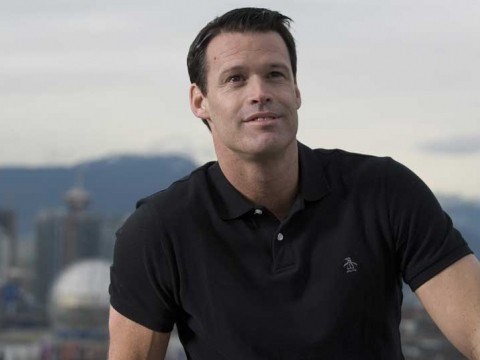Mark Tewksbury wasn't out of the closet when he competed in the Barcelona Olympic Games and brought a gold medal home to Canada in 1992.
But eight months before he won that fateful 100-metre backstroke race, he told his coach that he was gay. It was a revelation he said, and a weight off his shoulders that played a huge role in his win.
That was 17 years ago. Times have changed and though there are no openly gay or lesbian Canadian athletes competing at the 2010 Winter Games, for the first time ever there will be a PRIDE House in Whistler. Modeled after other national houses, PRIDE House is for gay and lesbian athletes, coaches and friends to gather during the Games.
"I don't think the success of it can be gauged by how many people are there," said Tewksbury of PRIDE House, in a recent interview from his Calgary home.
"The fact that it's there is the story."
The reality is that most athletes aren't thinking about their sexuality in the lead up to the Games, added Tewksbury.
"That being said, I think it's important that people feel they're supported."
PRIDE House will be a place where gay and lesbian athletes can "be their authentic selves regardless of sexual identity or preference," according to organizer Dean Nelson, CEO of GayWhistler, which produces WinterPRIDE, the annual gay ski week in Whistler.
Tewksbury took part in Whistler's WinterPRIDE last year and learned to ski for the first time at 40.
Back in his early 20s, however, as Canada's pride of the swimming pool, Tewksbury wasn't ready to be out of the closet. He would not have dropped by a PRIDE House had there been one in Barcelona.
"It's hard to compare that time and now," he said.
He said PRIDE House is a great step forward and he wonders aloud if this could have happened in another part of the world. In nearly 80 countries, homosexuality is banned, and subject to the death penalty in at least six.
That statistic is one of the reasons Tewksbury was asked to speak at the United Nations in December during a declaration seeking to decriminalize homosexuality. Sixty-six countries signed the declaration. Sixty other countries rejected it, including the United States.
His talk to the United Nations was a defining moment, a chance to tell his story to leaders of the world and the culmination of a decade of working tirelessly for the gay community to effect change.
Since winning Olympic gold and then coming out of the closet six years later, Tewksbury has been a speaker, an author and a television host. And now he wants to focus less on gay issues, and "return to humanity."
As to the future of PRIDE House, Tewksbury hopes that there can be future strides made in the Olympics. On the one hand, he recognizes that the Olympics are all about sport. At the same time, it is an organization and a movement that prides itself on so much more than just being a sports competition. It is, among many other things, also about inclusiveness.
But it is a slow beast to change, said Tewksbury.
He should know. After retiring from swimming in early 1993 with 21 national titles, Tewksbury was part of the International Olympic Committee in several different capacities.
"The Olympics are just by nature a conservative, rule-bound, boys club institution," he said.
He retired from all posts within the Olympic movement in 1999.
Now he runs a company called Great Traits Inc. based out of Calgary - a company that teaches people and organizations to strive for their best performances, to be "champions in their own lives."




